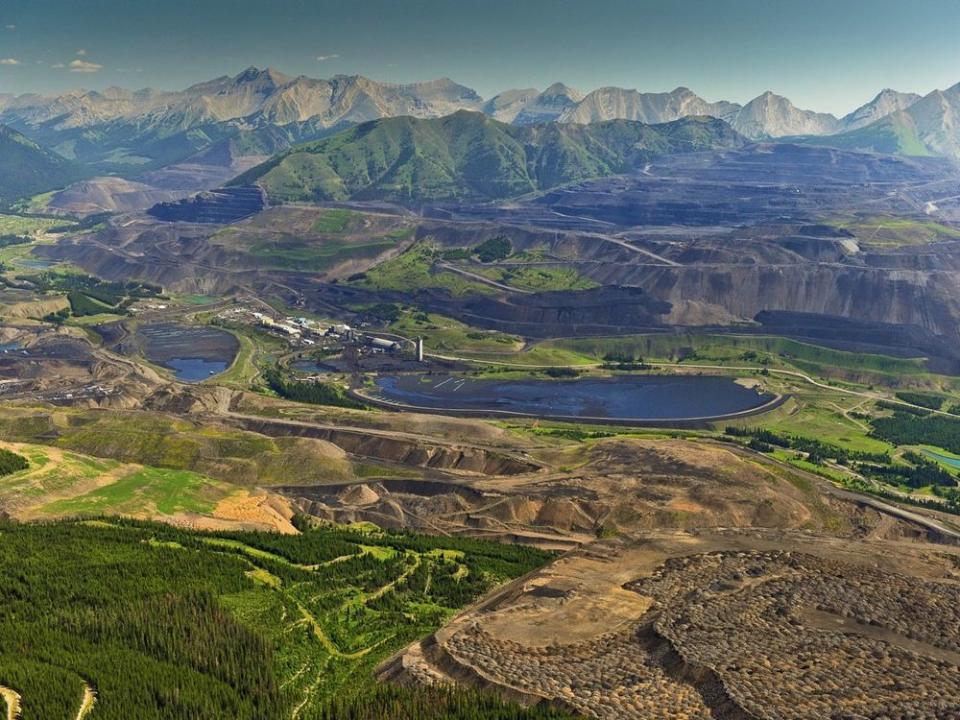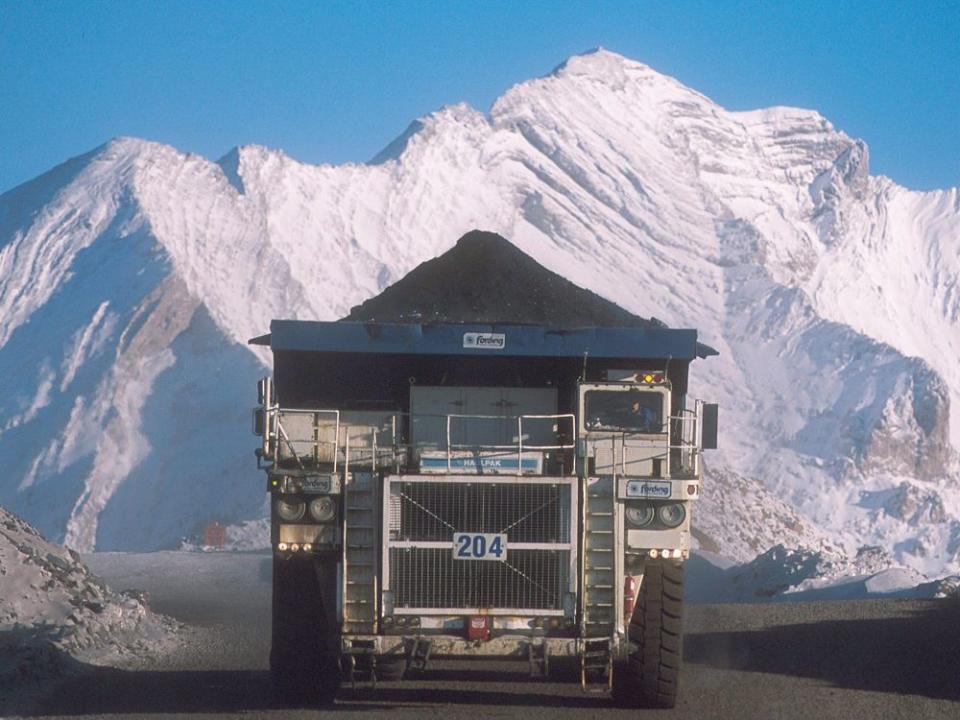Teck Resources, Canada's biggest diversified miner, appears set to go all-in on 'green metals'

When Jonathan Price took over as chief executive of Vancouver-based Teck Resources Ltd. last year, he played down any notion that his tenure would usher in rapid change. He even boasted about the company’s portfolio of diversified assets.
“I want to reinforce the strength of Teck’s strategy and growth foundation,” Price said during the July earnings call on which former CEO Don Lindsay publicly handed over the reins of one of Canada’s most important miners. “This is all the product of long-term strategic thinking,” Price added.
But with a Bloomberg News report that Teck may be on the verge of announcing a spin-off of its coal operations, Price looks poised to have instead presided over a complete makeover of Teck Resources, which long promoted the value of being able to supply various markets, rather than being beholden to demand for a one of two commodities.
In October, Teck sold its oilsands operations for $1 billion. A sale of the company’s coal assets would complete a transition from Canada’s largest diversified miner into a base metals miner focused on copper, a key ingredient in the electrification of the economy.
It would market one of the most significant acknowledgements by a Canadian resources giant to date that economic and societal forces have changed the game; the tailwind from the shift to a greener economy and headwinds related to climate change regulations have simply become too much for companies to ignore.
Teck acknowledged the “market rumours” that it is evaluating plans to cleave its steelmaking coal operations into a separate business, but made no comment on the timing, nor would it make assurances that a sale would eventually happen.
“Any transaction would be expected to create value for Teck’s shareholders and support continued benefits for communities and Indigenous Peoples in the areas where Teck operates,” the company said in a statement on Feb. 16.
Why now?
Although trading volumes surged, implying investors were excited by the prospect, not everyone agrees that Teck should spin off its steelmaking coal assets now.
“We have seen similar speculation before and, in our view, the spin-out is equally unlikely today,” Jackie Przybylowski, an analyst at BMO Capital Markets wrote on Feb. 16, adding a sale now would be “premature.”
Bloomberg speculated that the coal assets would fetch US$8 billion; Przybylowski valued them at US$5 billion to US$6.4 billion, and possibly as low as US$3.1 billion, depending on how much debt is factored in.

Lindsay himself signalled a sale of Teck’s coal business was a possibility last year, when he embraced copper as central to the company’s future. “Accelerating copper growth is the cornerstone of our strategy and by growing our copper production, we rebalanced our portfolio toward what are now called ‘green metals,’” Lindsay said on April 28, 2021.
Of course, the company’s financial statements showed Teck was far from a copper company: In 2021, steelmaking coal accounted for 55 per cent of its profits, compared with 34 per cent from copper.
But in 2020, volatile prices for both fossil fuels and copper meant that copper contributed more profit for the first time since 2010 — 44 per cent versus 35 per cent. And the fact that Lindsay was even describing Teck as a “green metals” company marked a departure from the strategy he pursued for much of his 17 years as chief executive, when he often talked about the value of diversification.
‘Long-lived assets’
Commodity prices are cyclical, Lindsay would say at public presentations, and so the longer a mine operates, the better the odds that it would produce during the high point of a price cycle. By investing in “long-lived assets” and pursuing diversification, Teck could mitigate the risk that less diversified miners faced.
“Our assets will be in operations through multiple price cycles long after capital has been recovered, and we believe this will result in significantly enhanced returns over the life of the assets,” Lindsay said at an April 2017 Bank of America conference.
But as the energy transition picked up speed, having both fossil fuels and copper caused its own problems. As more investors began to use ESG metrics — an emerging and loosely defined criteria used to rank a company’s impacts on the environment, sustainability and governance — Teck found itself at risk of alienating investors who refused to support companies that had anything to do with coal and oil and gas.
“They are now saddled with two businesses that every environmentalist is going to hate,” said Bob Bishop, managing principal of Impala Asset Management, said in May 2021.

One year earlier, Bishop had written a letter to Teck’s board and met with Teck board chair Sheila Murray to call for Lindsay’s removal.
Analysts have drawn similar conclusions about separating fossil fuels and copper. Alexander Hacking of Citigroup Global Markets Inc. wrote this week that he values Teck’s copper assets more than twice as much as its coal assets.
Still, Hacking also questioned the timing of a copper spin-off now.
“We are a little surprised as we thought the company would stick with coal for now and re-balance the portfolio mostly through copper growth,” Hacking wrote. “Teck’s standalone base metals business would potentially command a higher multiple and make a very attractive M&A target should the controllers ever decide to sell.”
Influential insiders
Any takeover would likely depend on influential insiders. Temagami Mining Corp. controls approximately 33 per cent of the aggregate voting shares, thanks to ownership of 55.4 per cent of the class A shares, which each carry 100 votes.
Temagami is jointly owned by Keevil Holding Corp., a family company associated with Norman B. Keevil III, a Teck director, and Sumimoto Metals Mining Co. Ltd.
Sumimoto separately owns an additional 11.3 per cent of Teck’s voting shares, according to a management information circular from March 2022.
Agnico Eagle CEO talks short-term funds, diversification, gold miners
Nutrien CEO says Ukraine conflict has created 'room in the market'
Ottawa move to block China investment 'short-sighted:' Lithium Chile
That Teck could go from Canada’s largest diversified mining company to a base metals company that would be an attractive target of a committed — and large — diversified mining company is an irony that has largely gone unnoticed. That might be because a spin-off remains unconfirmed, and even doubtful to some people.
“A coal spin-out didn’t make strategic sense in September 2021, and it doesn’t now – although the timing for a potential spin-out is getting closer,” Przybylowski wrote. She said Teck is near to completing its QB2 project — a multibillion dollar copper expansion in Chile that has been in progress for years. Once it comes online in 2024, the company will have “significantly higher cash flows,” which may make it easier to pay down some of the company’s debt.
That debt is an impediment to spinning off the coal assets now, Przybylowski said.
• Email: gfriedman@postmedia.com | Twitter: GabeFriedz

 Yahoo Finance
Yahoo Finance 